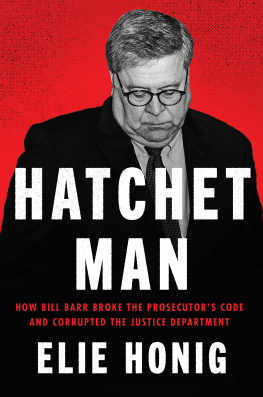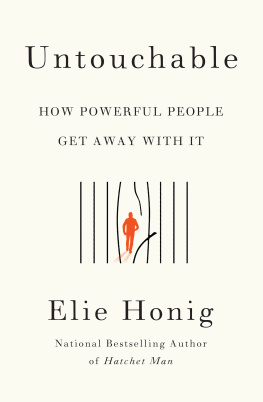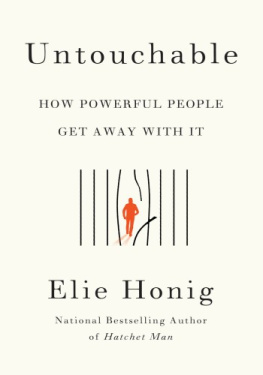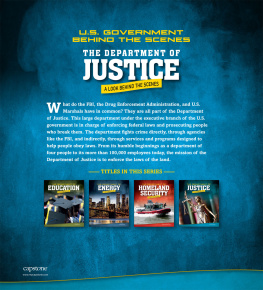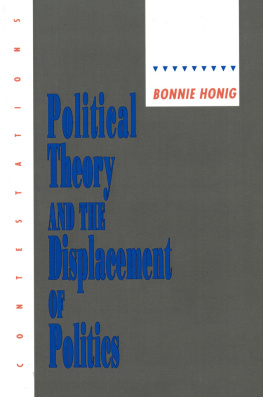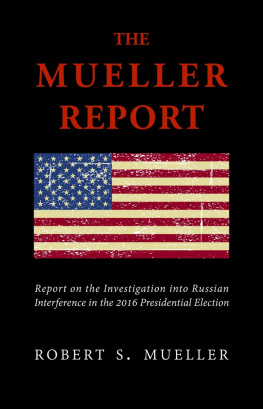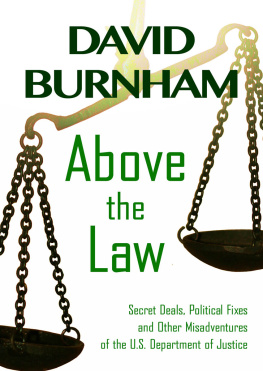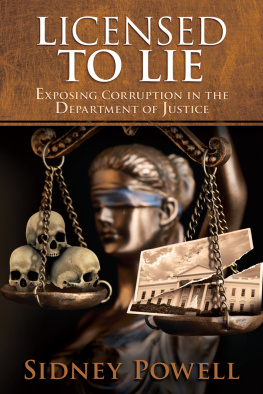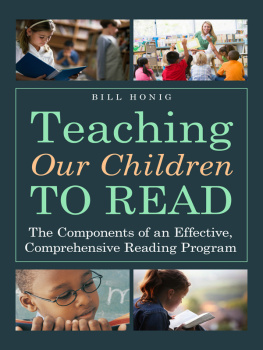Elie Honig - Hatchet Man: How Bill Barr Broke the Prosecutors Code and Corrupted the Justice Department
Here you can read online Elie Honig - Hatchet Man: How Bill Barr Broke the Prosecutors Code and Corrupted the Justice Department full text of the book (entire story) in english for free. Download pdf and epub, get meaning, cover and reviews about this ebook. year: 2021, publisher: Harper, genre: Detective and thriller. Description of the work, (preface) as well as reviews are available. Best literature library LitArk.com created for fans of good reading and offers a wide selection of genres:
Romance novel
Science fiction
Adventure
Detective
Science
History
Home and family
Prose
Art
Politics
Computer
Non-fiction
Religion
Business
Children
Humor
Choose a favorite category and find really read worthwhile books. Enjoy immersion in the world of imagination, feel the emotions of the characters or learn something new for yourself, make an fascinating discovery.
- Book:Hatchet Man: How Bill Barr Broke the Prosecutors Code and Corrupted the Justice Department
- Author:
- Publisher:Harper
- Genre:
- Year:2021
- Rating:5 / 5
- Favourites:Add to favourites
- Your mark:
- 100
- 1
- 2
- 3
- 4
- 5
Hatchet Man: How Bill Barr Broke the Prosecutors Code and Corrupted the Justice Department: summary, description and annotation
We offer to read an annotation, description, summary or preface (depends on what the author of the book "Hatchet Man: How Bill Barr Broke the Prosecutors Code and Corrupted the Justice Department" wrote himself). If you haven't found the necessary information about the book — write in the comments, we will try to find it.
Elie Honig: author's other books
Who wrote Hatchet Man: How Bill Barr Broke the Prosecutors Code and Corrupted the Justice Department? Find out the surname, the name of the author of the book and a list of all author's works by series.
Hatchet Man: How Bill Barr Broke the Prosecutors Code and Corrupted the Justice Department — read online for free the complete book (whole text) full work
Below is the text of the book, divided by pages. System saving the place of the last page read, allows you to conveniently read the book "Hatchet Man: How Bill Barr Broke the Prosecutors Code and Corrupted the Justice Department" online for free, without having to search again every time where you left off. Put a bookmark, and you can go to the page where you finished reading at any time.
Font size:
Interval:
Bookmark:
- Cover
- Title Page
- Dedication
- The Prosecutors Code: Earn Your Stripes
- Confirmation
- The Prosecutors Code: Impartiality
- The Mueller Investigation
- The Prosecutors Code: Take a Shot
- Ukraine
- The Prosecutors Code: Podium Privilege
- Michael Flynn
- The Prosecutors Code: Protect the Process
- Roger Stone
- The Prosecutors Code: Independence
- SDNY Takeover
- The Prosecutors Code: Business, Never Personal
- E. Jean Carroll
- The Prosecutors Code: Know Your Role
- Lafayette Square Park
- The Prosecutors Code: Take the Facts as They Are
- The Durham Investigation: Investigate the Investigators
- The Prosecutors Code: Own It, Fix It
- The 2020 Election: Endgame
- Culture Warrior
- The Road Back
- The Prosecutors Code: Humility
- Acknowledgments
- Index
- About the Author
- Copyright
- About the Publisher
- i
- ii
- iii
- v
- ix
- ix
- x
- iv
Earn Your Stripes
Font size:
Interval:
Bookmark:
Similar books «Hatchet Man: How Bill Barr Broke the Prosecutors Code and Corrupted the Justice Department»
Look at similar books to Hatchet Man: How Bill Barr Broke the Prosecutors Code and Corrupted the Justice Department. We have selected literature similar in name and meaning in the hope of providing readers with more options to find new, interesting, not yet read works.
Discussion, reviews of the book Hatchet Man: How Bill Barr Broke the Prosecutors Code and Corrupted the Justice Department and just readers' own opinions. Leave your comments, write what you think about the work, its meaning or the main characters. Specify what exactly you liked and what you didn't like, and why you think so.

